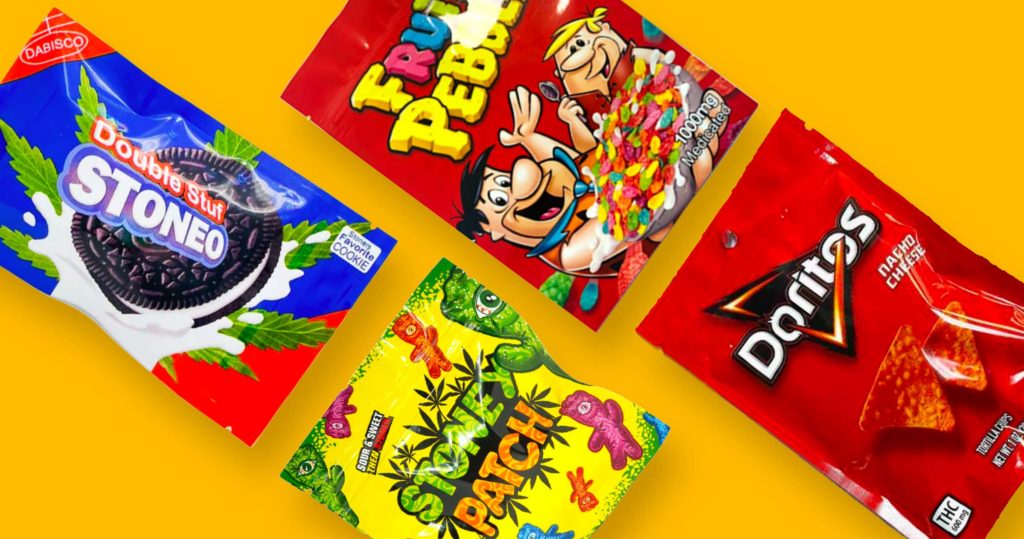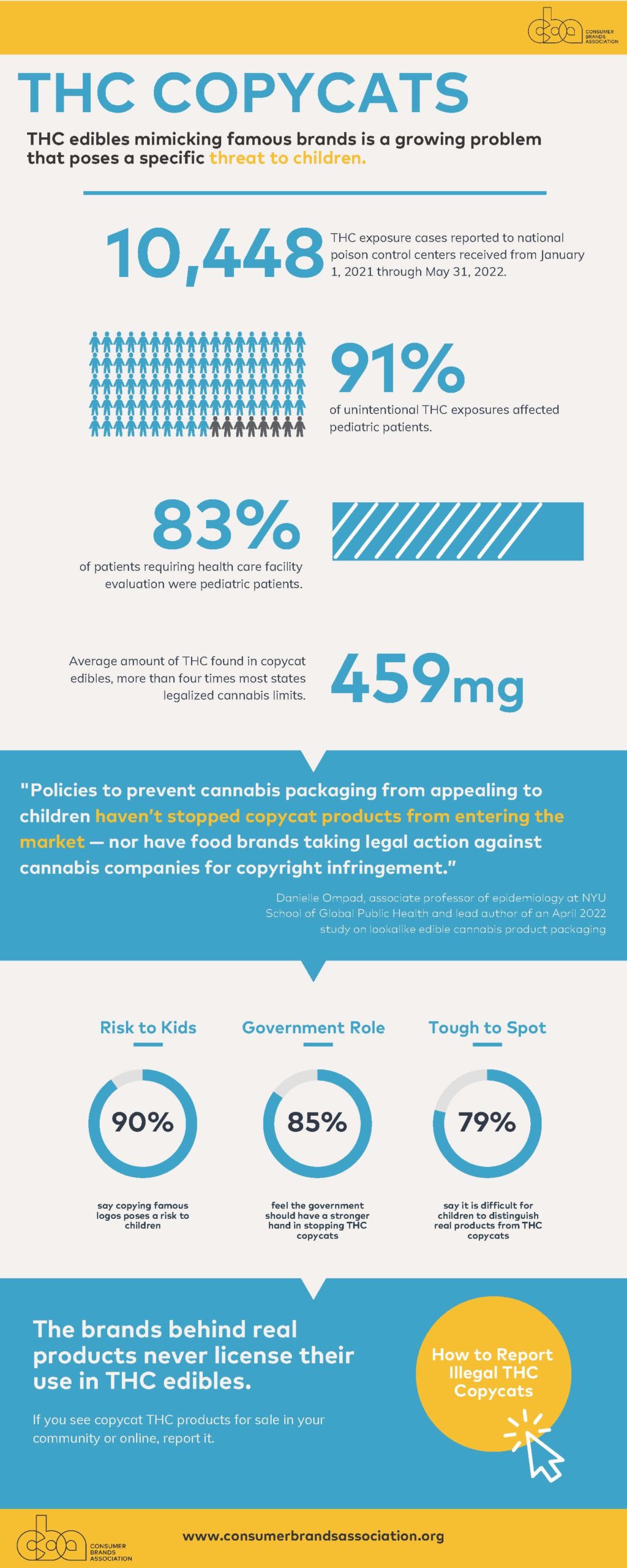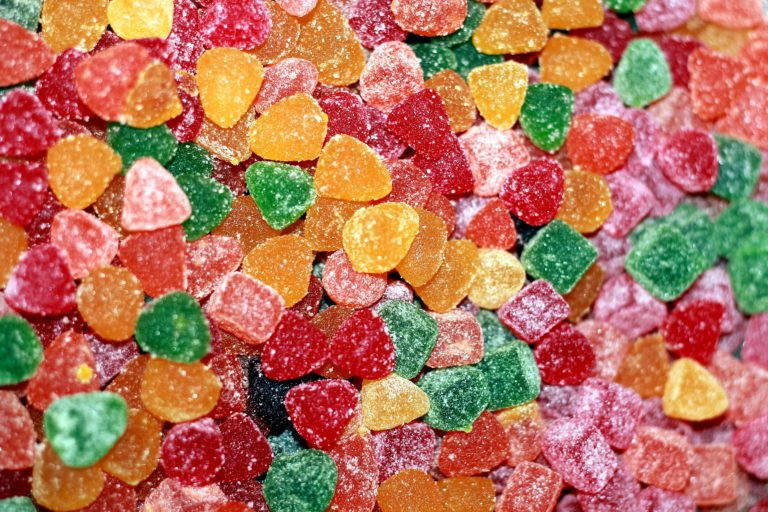Smart Regulation
THC edibles mimicking popular brands is a growing problem.
The Problem
As more states legalize recreational marijuana and interest in it grows, THC-infused products are gaining in popularity, particularly edibles.
And now, illicit suppliers have begun coopting legitimate brand names and identities to sell candy, snacks and cereal laced with THC.

CPG companies are unequivocally opposed to their brands being illegally used in products containing THC.
But rooting out these bad actors is like a game of whack-a-mole. By the time a company or government entity goes after them, their local storefront or online presence disappears and they pop up with a new name and new site.
Examples of third-party THC products ripping off legitimate brands.
The urgency of this issue is not about intellectual property infringement, but about how that infringing use of trusted food brands creates a direct threat to consumer safety — particularly that of children.
From January 2021 through May 31, 2022, national poison control centers handled 10,448 exposure cases involving products laced with THC. Of those cases, 77% involved patients 19 years old or younger, and 91% of unintentional exposures affected pediatric patients.
As incidents of children being hurt by lookalike products that endanger them increase, greater enforcement is necessary.
This public health and safety issue is too critical to be handled exclusively by the limited tools available to the owners of misused brands — that’s why we’re working hard to bring this to the attention of federal and state law enforcement and policymakers.
TODAY feature on copycat THC edibles with insights from NBC senior medical correspondent Dr. John Torres on the risks to young children.
What’s at Stake
A Consumer Brands poll revealed Americans’ strong opinions on the risk of THC lookalikes and action desired from the federal government.
90%
of Americans
say mimicking popular logos and brands in products that contain THC poses a risk to children.
85%
of Americans
feel the government should have a stronger hand in stopping THC companies from mimicking popular brands and logos that could confuse children.
79%
of Americans
believe it is difficult for children to distinguish real products from those containing THC.

How to Report Fraudulent Products
If you spot a THC copycat masquerading as a legitimate candy or snack, or someone who is selling them, report it immediately using this list of contacts in your state.
More Resources

Consumer Brands
FAQs: The Threat to Child Safety When THC Edibles Mimic Popular Brands

CDC
CDC Emergency Warning, THC-Containing Products

What Is Smart Regulation?
We advocate for smart regulatory frameworks that maintain affordability, promote choice and build consumer trust across the sectors we represent, from household and personal care products to food and beverage.



